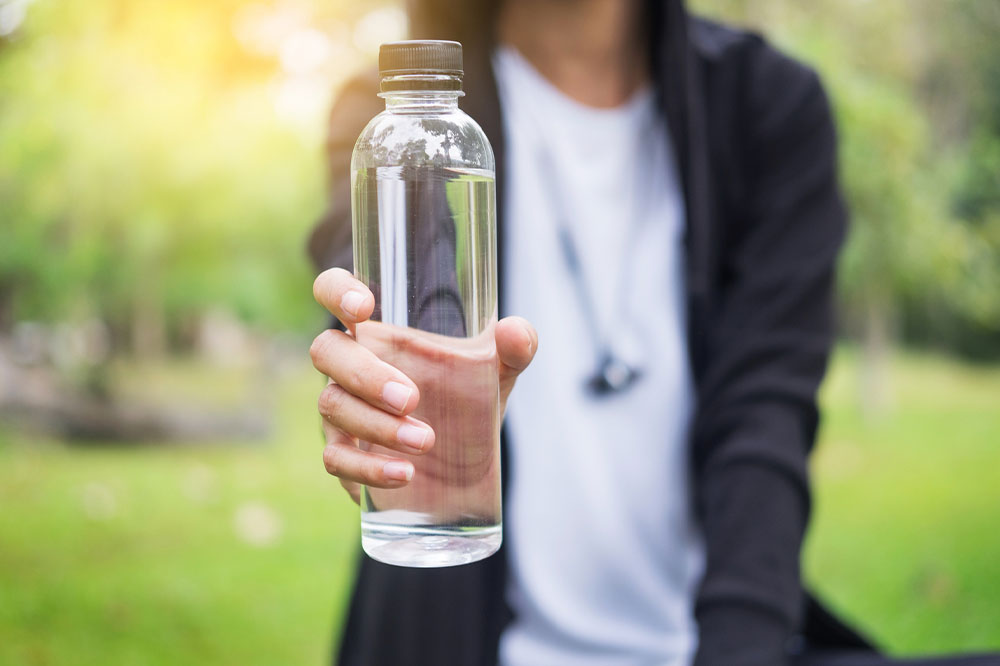Different Types of Bottled Water
Bottled water offers convenience. You can carry them with you while traveling to ensure a safe source of drinking water wherever you go. You don’t need to go in search of public drinking water taps and fountains when you are thirsty.
Evolution of bottled water
Carrying drinking water in leather bags and other containers has been a practice across the world for millennia. Still, the first official bottling of drinking water from a specific source began in the early 17th Century in Britain. The Malvern Spring Water was taken from the Holy Well located on the Malvern Hills.
This water was held by the faithful to be holy and said to have special medicinal properties.

Later, the popularity of mineral water baths and mineral drinking water in health spas led to a renewed demand for bottled water. Many believed in the curative powers of this spa water, which had a lot of mineral content. The water was initially taken from natural sources.
Soon, the ability to aerate water using carbon dioxide enabled bottling companies to create carbonated water that closely resembled the natural bubbliness of spring water.
However, the chlorination of public drinking water supplies reduced the demand for bottled drinking water. As tap water became safer, most Americans stopped buying bottled water for daily use. Still, while traveling or generally on the move, bottled water is seen as a convenient item. Bottled drinking water is the second-most popular beverage in America.
You can get bottled water from many different brands, but they also differ by the source from which they were taken like artesian water and spring water. Bottled water may also differ by the processes used to remove or add elements to it like distilled water, purified water, etc.
Types of bottled water
Depending on the source or the processing methods, bottled water can be classified into a few basic types:
Purified water
This type of water can be taken from any source. Various processes like distillation and reverse osmosis may be used to remove pathogens and chemicals from the water before they are packaged.
Distilled water
This is a specific water purification process. Water is boiled and turned into steam. This steam is then condensed back into the water, removing microorganisms and any minerals.
Public Water Source (PWS)
This is usually tap water that has been processed further to remove any remaining impurities.
Artesian water and spring water
These are taken from underground water sources. Artesian water is taken from wells that tap into natural sources – water that is trapped in rock or sand. Spring water is taken from a naturally flowing underground source that emerges from the earth as a spring.
Mineral water
Water from any natural source containing around 250 parts per million of total dissolved solids (TDS).
What constitutes good bottled water?
Certain drinking water brands are extremely popular in the market and these include Aquafina, Crystal Geyser, Dasani, Evian, Nestle Pure Life, Resource, Penta, etc. A website that publishes product reviews put up a list of some of the best bottled water brands in 2017.
They used a set of criteria to pick the contenders – a neutral pH level, taste, and packaging.
The pH level of drinking water is usually a safe 7. This is neither very acidic nor highly alkaline. Low pH levels indicate acidity, while high pH levels indicate that the water is highly alkaline. Acidic water could irritate and erode your teeth when consumed often and alkaline water may affect your esophagus.
A blind taste test was conducted to pick the best bottled waters. The participants also rated the packaging of the bottles. Most of them disliked the crumply packaging on some brands; they preferred firmer plastic bottles and also plastic alternatives like good paper cartons.
Based on taste, the top bottled water brands include Resource Spring Water, Fiji Natural Artesian Water, and Crystal Geyser Alpine Spring Water. JUST Water and Evian Mineral Water also made the grade. These water types contain no added flavors. They are just processed water taken from different sources.
Drinking water, especially safe and pure water, is becoming a rare commodity across the world. Contaminated water sources, inadequate public water distribution system, municipal water supplies that do not meet the best standards, are the norms in many parts of the world. Even in countries like the US, where tap water is considered safe, bottled water is still perceived as a good and convenient way to get access to pure drinking water, while you are on the move.

